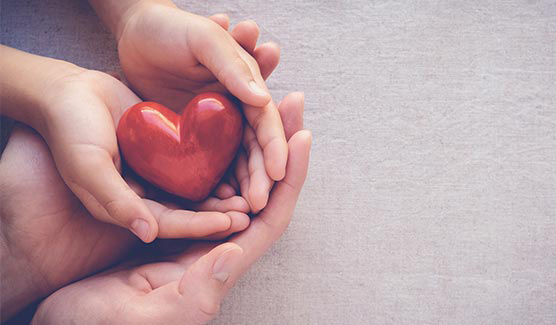
Living with Holes in the Heart
The outlook for children who have atrial septal defects (ASDs) or ventricular septal defects (VSDs) is excellent. Advances in treatment allow most children who have these heart defects to live normal, active, and productive lives with no decrease in lifespan.
Many children who have these defects need no special care or only occasional checkups with a cardiologist (a heart specialist) as they go through life.

Living with an Atrial Septal Defect
Small ASDs often close on their own and don't cause complications or require treatment. Children and adults who have small ASDs that don't close and don't cause symptoms are healthy and don't need treatment.
Many others who have ASDs that don't close have catheter procedures or surgery to close the holes and prevent possible long-term complications. Children recover well from these procedures and lead normal, healthy lives. Adults also do well after closure procedures.
Ongoing Care
Arrhythmias - The risk of arrhythmias (irregular heartbeats) increases before and after surgery. Adults who have ASDs and are older than 40 are especially likely to have arrhythmias. People who had arrhythmias before surgery are more likely to have them after surgery.
Follow up care - Regular followup care into adult life is advised for people who have had:
- An ASD repaired as an adult
- Arrhythmias before and after surgery
- An ASD repaired with a catheter procedure
- Pulmonary hypertension (increased pressure in the pulmonary arteries) at the time of surgery
Antibiotics - Children who have severe heart defects may be at slightly increased risk for infective endocarditis (IE). IE is a serious infection of the inner lining of your heart chambers and valves.
ASDs aren't associated with a risk of IE, except in the 6 months after repair (for both catheter procedures and surgery).
In a few situations, your child's doctor or dentist may give your child antibiotics before medical or dental procedures (such as surgery or dental cleanings) that could allow bacteria into the bloodstream. Your child's doctor will tell you whether your child needs to take antibiotics before such procedures.
To reduce the risk of IE, gently brush your young child's teeth every day as soon as they begin to come in. As your child gets older, make sure he or she brushes every day and sees a dentist regularly. Talk with your child's doctor and dentist about how to keep your child's mouth and teeth healthy.
Special Considerations for Children and Teens
- Activity - Children who have small VSDs that don't require surgery or who have recovered from VSD repair shouldn't have activity restrictions. Be sure to check with your child's doctor about whether your child can take part in sports.
- Growth and development - Your pediatrician or family doctor will check your child's growth and development at each routine checkup. Babies who have large VSDs may not grow as quickly as other infants. These babies usually catch up after their VSDs are closed.
- Regular health care - Your child should see his or her regular doctor for routine health care.
- Additional surgery or procedures - Teens and young adults rarely need additional surgeries once VSDs are closed or repaired.
Image source: Getty
How we keep this article up to date:
We work with experts and keep a close eye on the latest in health and wellness. Whenever there is a new research or helpful information, we update our articles with accurate and useful advice.
Current Version